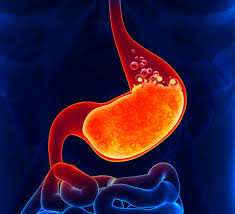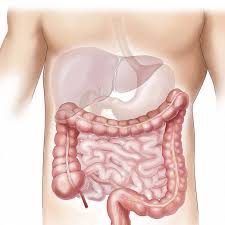If you have struggled to lose weight, then you are likely familiar with the diet and exercise routines that always seem to accompany any sort of weight-loss plan. While these two things are essential for losing weight, there is a third factor that can make or break your success – digestive enzymes. The power of digestive enzymes has been known for centuries, but only recently have they become widely accepted as an important part of a weight-loss program. In this blog post, we’ll explore the role digestive enzymes play in weight loss and how they can help you reach your goals.
Contents
What Are Digestive Enzymes?

There are a lot of different digestive enzymes, but they all have one basic goal: to help you break down the food you eat so your body can absorb the nutrients it needs.
Your body produces some digestive enzymes on its own, but others are found in the foods you eat. For example, papaya and pineapple contain enzymes that can help break down proteins. And fermented foods like yogurt and kimchi supply bacteria that aid in digestion.
We need digestive enzymes because they help us extract energy and nutrients from the food we eat. They do this by breaking down complex molecules into simpler ones that our bodies can absorb.
Digestive enzymes are important for weight loss because they help our bodies make better use of the calories we consume. When we digest food properly, our bodies can better access the nutrients and energy it contains. This helps to boost metabolism and promote weight loss.
There are a few different types of digestive enzymes, each with a specific function:
- Amylase: This enzyme helps to break down carbohydrates into simple sugars so your body can absorb them more easily. Amylase is found in saliva and pancreatic juice.
- Protease: Protease helps to break down proteins into amino acids, which are the building blocks of muscle tissue. Protease is found in gastric juice and pancreatic juice.
- Lipase: Lipase aids in fat digestion by breaking down triglycerides into fatty acids and glycerol. Lipase is found in gastric juice and pancreatic juice.
- Cellulase: Cellulase helps to break down cellulose, which can’t be digested by humans but provides bulk to our diets. Cellulase is produced by bacteria in the large intestine.
These are some of the most important digestive enzymes, but there are many more which are involved in the digestion process.
How Do Digestive Enzymes Help With Weight Loss?
Digestive enzymes can help with weight loss in several ways. First, they help to break down food more efficiently, allowing your body to absorb more of the calories and nutrients it contains. This helps you feel fuller for longer periods, making it easier to stick to a healthy diet plan and avoid overeating or eating unhealthy snacks between meals.
A second way that digestive enzymes can help with weight loss is by boosting metabolism. When your body can extract more energy from the food you eat, it signals your metabolism to speed up so that you burn calories more efficiently. This helps you lose weight more quickly and effectively.
Finally, digestive enzymes can help to reduce inflammation in the body. Inflammation has been linked to several health issues, including obesity and metabolic syndrome. So, by helping to reduce inflammation, digestive enzymes can help contribute to overall good health and successful weight loss.
Best Sources of Digestive Enzymes

There are three primary sources of digestive enzymes:
Pancreas
One of the best ways to produce digestive enzymes is through the pancreas. The pancreas produces several different types of digestive enzymes, including amylase, lipase, and protease. These digestive enzymes help to break down carbohydrates, proteins, and fats into smaller molecules that can be easily absorbed by the body. Additionally, the pancreas also produces bile which is essential for proper digestion.
Plant Sources
Another excellent source of digestive enzymes is plant sources such as fruits and vegetables. Fruits and vegetables are rich in vitamins and minerals, but they also contain a variety of enzymes that can help break down food into its parts faster and easier for absorption into the body. Some good examples include papaya, pineapple, broccoli, spinach, kale, tomatoes, onions, garlic, and radishes.
Supplemental
A third option for getting digestive enzymes is supplements. There are many different types of supplements available on the market, including plant-based enzyme supplements, animal-based enzyme supplements, and powdered enzyme supplements. These are easy to take and can be beneficial for anyone who is looking for extra digestive support.
Raw Fruits and Vegetables
One of the most common and best ways to get digestive enzymes is by consuming raw fruits and vegetables. Eating them in their natural state helps preserve the enzymes, allowing your body to benefit from all of their benefits. Additionally, many plant-based foods are known for being prebiotics, meaning they contain compounds that can help feed the beneficial bacteria in your gut and promote a healthy microbiome.
Overall, digestive enzymes play an important role in digestion and weight loss. By making sure you get enough of them through diet and supplementation, you can ensure your body is getting the nutrients it needs while also aiding in weight loss efforts.
How To Incorporate Digestive Enzymes Into My Weight Loss Plan?
There are a few ways that you can incorporate digestive enzymes into your weight loss plan. Some of the ways to incorporate these are to add digestive enzyme supplements to your diet, choose foods that are naturally high in enzymes, and use probiotics.
Adding Digestive Enzyme Supplements
Adding a digestive enzyme supplement to your diet is one way of incorporating them into your weight loss plan. These can be found at most health food stores or online. Make sure you read the labels carefully and follow the directions on the bottle so that you do not take too much. There are also different types of supplements available, so you can choose the one that is best for your individual needs.
Choosing Foods High In Enzymes
Many foods are naturally high in enzymes that can be incorporated into your weight loss plan. Some examples include papaya, pineapple, mangoes, bananas, kiwi fruit, garlic, onion, spinach, asparagus, Brussels sprouts, and almonds. Eating these foods will help to ensure that you are getting the digestive enzymes your body needs to break down food efficiently and promote weight loss.
Using Probiotics
Probiotics are beneficial bacteria found in certain foods such as yogurt and fermented vegetables. They help to improve digestion and can be added to your weight loss plan. Adding probiotics to your diet helps to maintain the balance of healthy bacteria in your gut, which will aid in digestion, nutrient absorption, and weight loss.
Try to incorporate these methods into your weight loss plan and you will be on your way to improving digestive health and reaching your goal weight. With the right combination of diet, exercise, and digestive enzymes, you can achieve weight loss success.
Are There Any Side Effects of Taking Digestive Enzymes?

There are a few potential side effects of taking digestive enzymes, but they are generally mild and temporary. The most common side effects are:
Bloating
One of the most common side effects of digestive enzymes is bloating. This results when an enzyme supplement increases the amount of gas in your intestines.
Upset Stomach
Digestive enzymes can also cause mild stomach upset or discomfort, including nausea and vomiting. If you experience any of these symptoms, talk to your doctor about reducing the dosage or trying a different type of enzyme supplement.
Allergic Reactions
In some cases, people may experience an allergic reaction to a particular enzyme supplement. Symptoms of an allergic reaction include hives, itching, rash, difficulty breathing, and swelling of the face or throat.
Cancer
An investigation conducted by the National Toxicology Program (NTP) found that a particular strain of digestive enzyme, trypsin, may have a potential link to cancer. However, further research is needed to better understand this relationship.
If you experience any concerning side effects from taking digestive enzymes, contact your healthcare provider immediately for advice. It’s
Conclusion
Digestive enzymes can be a great tool for anyone looking to lose weight. They help break down food more efficiently, allowing your body to absorb nutrients more quickly and giving you energy throughout the day. In addition, they also help improve digestion which helps reduce bloat and discomfort after eating. If taken regularly with a balanced diet and adequate exercise, digestive enzymes can give you that extra boost of energy needed to keep up with your weight loss goals. So if you are looking to slim down and live a healthier lifestyle, give digestive enzyme supplements a try.
Consider contacting FitMantra for additional information on nutrition and fitness. You can also get in touch with their nutrition experts through our online nutrition counseling, who can guide you through the process and help you achieve your fitness goals. You can also lose weight with the help of our weight loss program. Download our Fitness app on Android to learn more about us.
